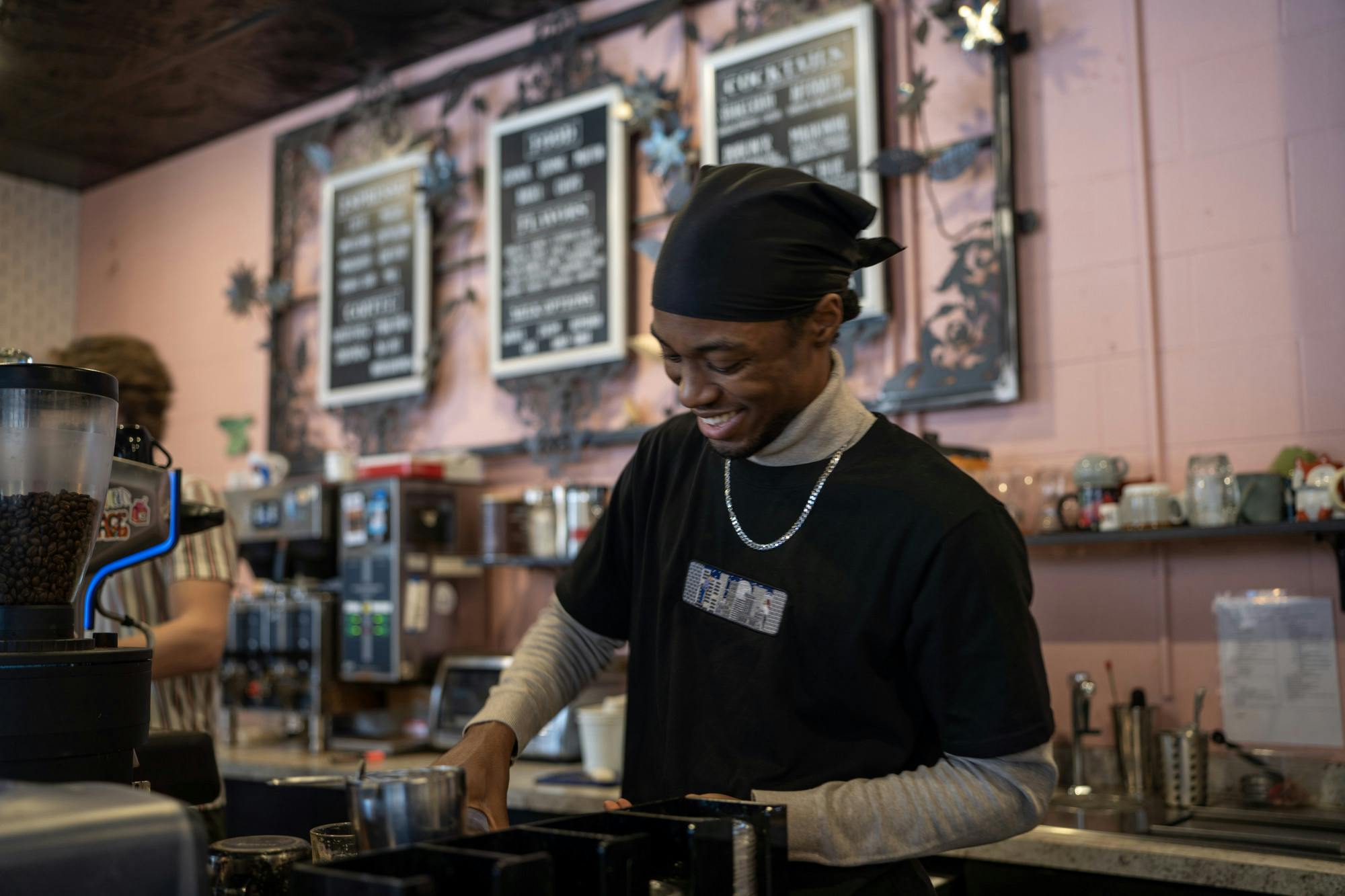Throughout time, the idea of college has been shaped by movies – 22 Jump Street, Pitch Perfect, Neighbors and Old School, just to name a few. All supposedly encompass college’s “true essence”: partying and drinking alcohol.
However, as more and more students begin and continue to abstain from alcohol, several establishments throughout Greater Lansing have begun to add non-alcoholic cocktails to their menus, giving an option to those who still desire the sophisticated taste and social environment without having to consume alcohol. These drinks are commonly referred to as "mocktails."
Lansing bars and restaurants such as The Grid Arcade & Bar and The Avenue have stepped up, adding mocktails to their menus. The establishments have given those who do not drink the ability to join in on an environment in which many are consuming alcohol.
The Grid Arcade & Bar offers four mocktails, the Great Gazoo, No Whammies, Swamp Thing and The Smurf. Using a carbonated nonalcoholic beverage as a base, the Grid compliments the bubbles with citruses and sweets like berries and lime.
The Grid is hoping to add a few more mocktails to the menu in order to accommodate the wide variety of tastebuds.
“We are open to whole families,” The Grid General Manager Deanna Ware said. “People can bring their kids in and it’s nice for the kids to feel like they’re a little bit more grown up when they drink a mocktail like a Shirley Temple or any of the ones on our menu. Plus, there are a lot of people who don’t drink, and it still gives them the feeling of being included when they're surrounded by other people who drink.”
Ware said the mocktails are there for bartenders to give as an alternative for students if they are under 21-years-old.
Bar and restaurant The Avenue offers a mocktail called “I Prefer Podcasts” which mixes fresh orange juice, ginger beer and brown sugar simple.
Although the establishment displays one mocktail on their menu, that does not limit the bartenders who are free to use their imagination for mixing drinks.
The Avenue's owner, Colleen Kelley, said the bar also offers specials where a cocktail can be ordered without alcohol for half the price.
“Our cocktails are all made with fresh ingredients and so it’s very easy to make a nonalcoholic cocktail that’s really tasty,” owner Colleen Kelley said.
Lansing’s Blue Owl Coffee offers mocktails (coffee cocktails) as well despite it not serving alcohol in the first place.
“They found flavors that would work with a lot of traditional cocktail flavors and so then they decided to try making coffees that tastes a little bit like the traditional cocktails,” employee Blythe Foote said on the owners’ decision to include mocktails.
Blue Owl Coffee offers a menu of coffee cocktails from which patrons can choose. From the Ol’ Blue, a nonalcoholic twist on an Old Fashioned, to the Dubliner and Mackinac, two coffee cocktails resembling Fireball, Blue Owl Coffee has created nonalcoholic drinks that encompass staple cocktails.
Michigan State University human development and family studies junior Jenna Plumer said that drinking Shirley Temples and other soft drinks becomes repetitive and that she would like to start trying other mocktails.
Plumer, who has anxiety and abstains from drinking, said she thinks drinking would make her more anxious.
Alcohol, a depressant, can lower one's inhibition, a feeling that makes one self-conscious and unable to act in a relaxed and natural way. While alcohol may provide temporary relief, long-term, it can affect your health, said MSU associate psychology professor Bill Chopik.
“Increased drinking rates are associated with a lot of health problems like increased blood pressure, worse and more severe mental health,” Chopik said. “There’s a biological response to in which it’s a depressant on your entire physiological system.”
The anxiety one experiences from a hangover, otherwise known as “hangxiety”, comes from bodily stressors promoted by alcohol. Alcohol acts as a depressant and often a suppressant, when sober, the anxieties and stressors that were felt before drinking will still be present.
Despite the effects of alcohol, Chopik does not write drinking off entirely.
“The interesting thing is talking to clinical psychologists... when people think that they drink too much, there’s a solution where some people think you should just stop drinking entirely, but a lot of people would maybe just benefit from drinking a little bit less,” Chopik said. “You don’t necessarily have to cut it off entirely from your life but knowing how to control things, maybe it’s a little more of a middle ground.”
Support student media!
Please consider donating to The State News and help fund the future of journalism.
As mocktails become more available, more individuals who do not partake in drinking alcohol have the opportunity to feel a bit more comfortable in a spiritous environment.
“For an individual, it might provide a sense of comfort," Chopik said. "A sense that they’re not the odd person out."
Plumer has at times felt like the odd one out.
“When I go to a friend of a friend’s party, if I don’t know the people that well, I do feel left out just because I feel like college social drinking gets people more out of their shell and talkative,” Plumer said. “But when I’m with my friend group, I don’t feel that way. They know the story and I feel comfortable to have fun with them, with them being drunk and me being sober.”
Despite some not understanding Plumer's reasons not to drink, she says her friends are supportive and do not judge.
When she offers advice to those who do not want to drink alcohol but still want to be comfortable in a party environment, Plumer said it helps to remember people who are drinking will probably not recall any “embarrassing” dance moves or goofy manners.
Discussion
Share and discuss “The meteoric rise of the mocktail in Lansing” on social media.







